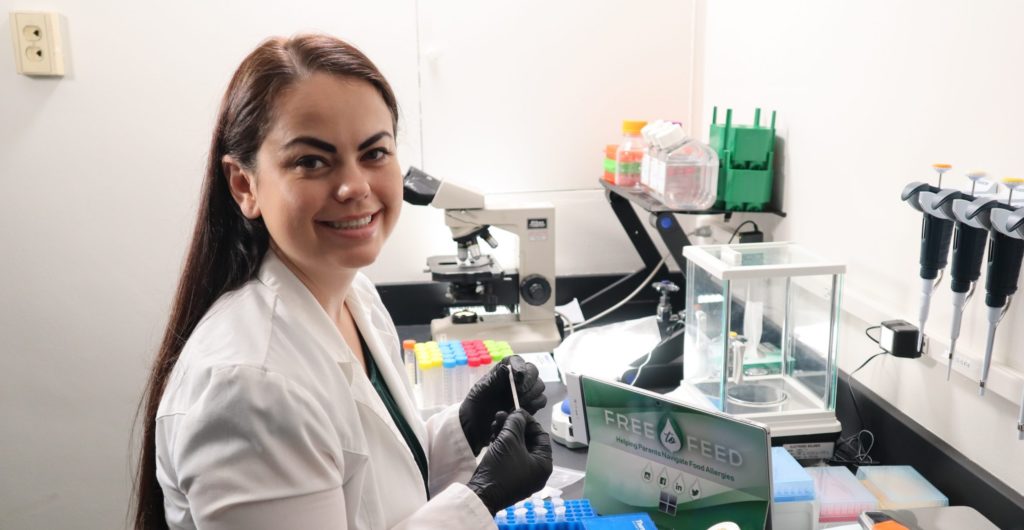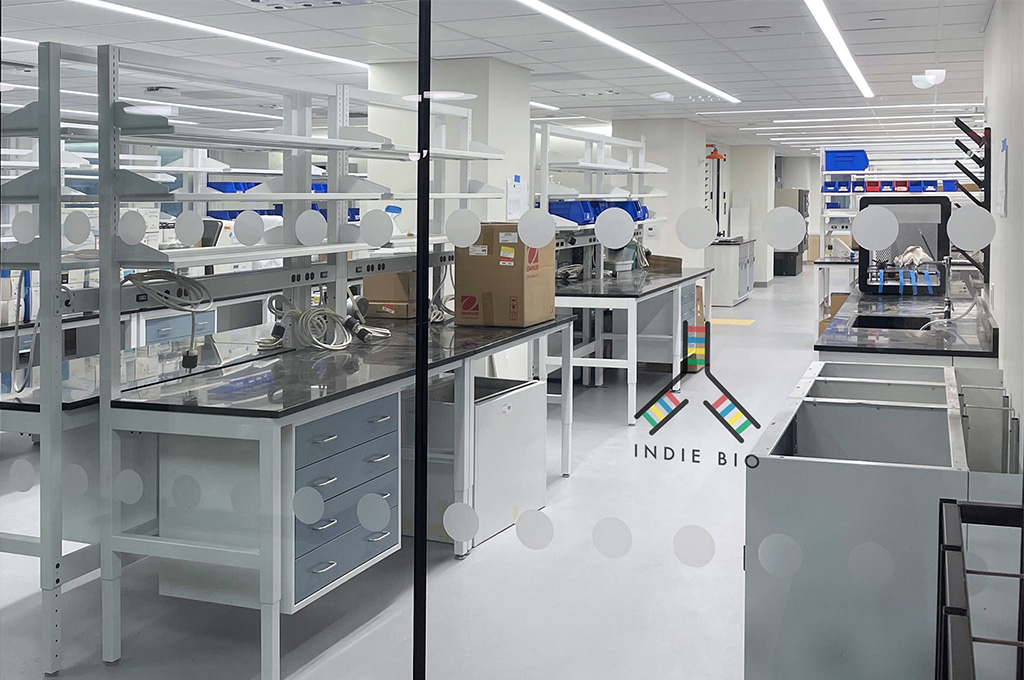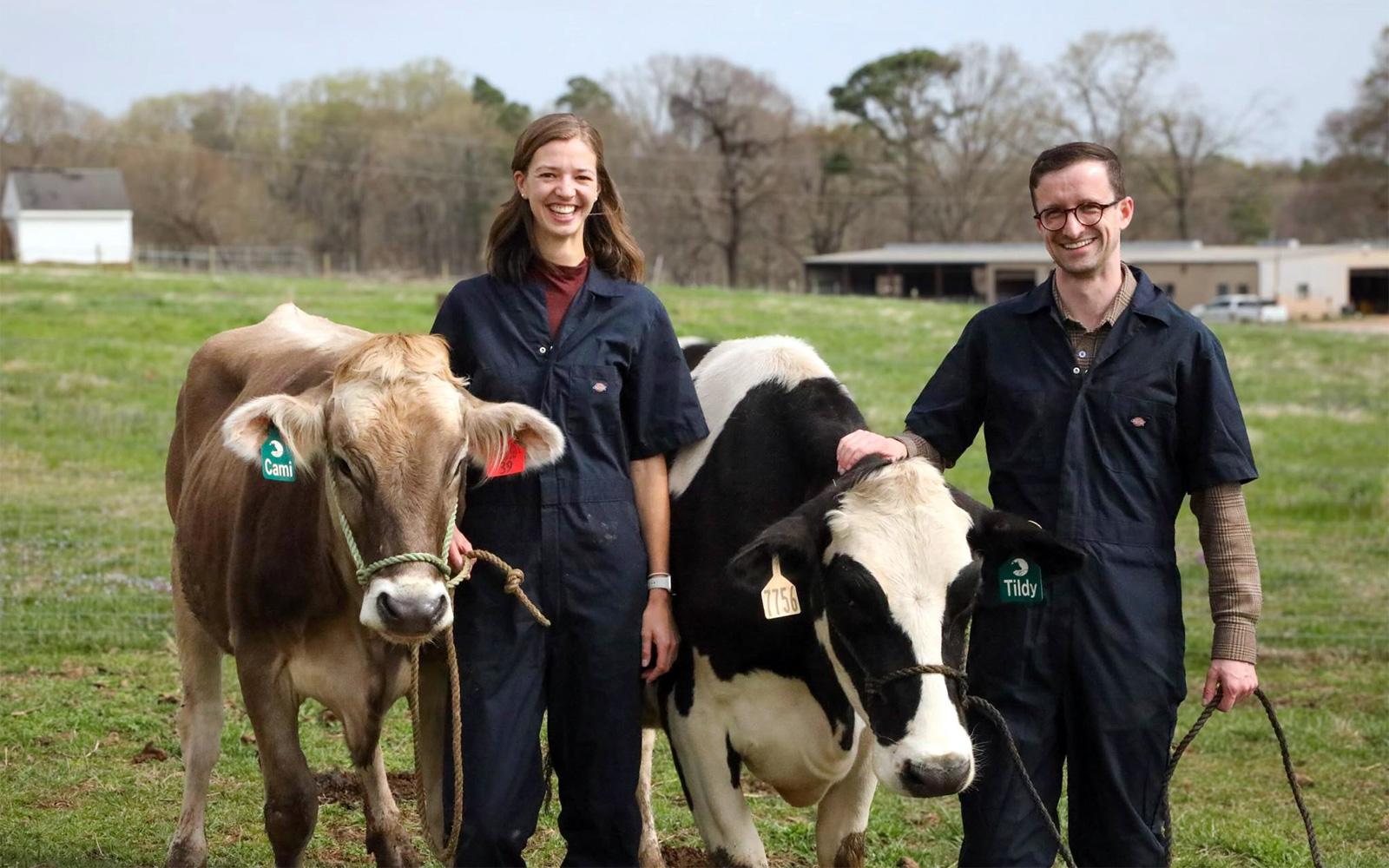
Free to Feed helps breastfeeding mothers with allergic babies. Breastfeeding babies can react to allergens passed through the mother’s milk, and Free to Feed provides solutions to pinpoint the allergenic source. The current “breast friend” model offers one-on-one consulting to help mothers identify the source in a couple months. Their forthcoming test kit is tailored to shorten this process further to 5 days.
See Free to Feed at IndieBio New York Class Two Demo Day
We spoke with Free to Feed Co-founder & CEO Trillitye Paullin to gain insight into her technology and motivation in building her startup.
What was your key insight that led to the formation of the company?
My key insight is that I am my customer segment. I had two babies, both of whom had severe reactions to food allergens passed in my breast milk. I have gone through the immense pain that breastfeeding parents are going through today. Working towards a solution to that immense pain is what motivated me to build the company and find an answer for future breastfeeding mothers.
What’s your go-to-market strategy?
For Free to Feed, the wonderful part is that we are already helping parents in the long way. Our consulting service helps mothers go through elimination diets and reintroduction, while being a source of support for them. Our go-to-market strategy is to give them a shorter way, selling them our test strips that will allow them to navigate this journey in a more straightforward manner.
By going directly to consumers, we eliminate any hurdles for the parents to get our product in their hands. The opinions directly from the parents are impactful — They want to be able to order a test themselves and start their journey without having to go through hurdles to do so. As we expand, we will continue to lean into professional networks and get into nutrition offices.
How do you compare to other types of allergy testing?
Our competition, outside formula, is a fragmented market. Besides formulas for allergic babies, there are certain companies that offer testing capabilities for breast milk, but they are looking at things such as vitamins and alcohol content. These tests are very important for some families, but it’s a completely different ball of wax when you are dealing with allergic reactivity. The content of alcohol or vitamin C is not likely to cause your baby to stay up all night screaming. So, the issue is different.
The other side of the market is the capability to send your breast milk for specific testing. There are definitely companies that will do testing for you, for things like the fat content of your breast milk.
The problem with that is in the food allergy space, every time you eat something or breastfeed, the content of your breast milk changes. After you consume a protein, it’s going to spike in concentration in your breast a few hours after ingestion and then slowly go down from there, usually gone within 24h. As you eat your breakfast, around lunch time, the breakfast is now peaking in your breast milk. You need a real-time, at-home test that tells you how your breast milk changes over the day and also tells you immediately, as opposed to 5 days later.
Breast milk is continuously changing and that’s why it’s so important to have point-of-care testing.
Dr. Trillitye Paullin, CEO of Free to Feed
In short, there are different testing abilities that are already offered to the parents for the breast milk, but none of which are looking at allergy specifically which is a very high pain point.
In addition to that, it’s different because we are offering this test in a way that would allow parents to introduce those allergens that have implications for early optimal introduction. We can potentially make a massive impact on the number of people who are growing up to have IgE immune anaphylactic shock reactions toward foods like peanuts.
What’s one thing that is making all your efforts worthwhile?
The most rewarding thing for me is one-on-one consultations. I get to meet struggling parents every single day and I’m honored to share a small part of their journeys.
These consultations are really important to me because I need to continue to evolve with the problem. My youngest daughter just turned 3 and I’m slowly getting further and further away from the problem personally. But the problem will evolve, whether I’m breastfeeding or not.
These consultations also remind me why I’m doing what I’m doing. On my hard days, being able to talk to a parent gives me my motivation. Because no matter how hard my day was, her days are way worse. That’s what keeps me doing what I’m doing.



